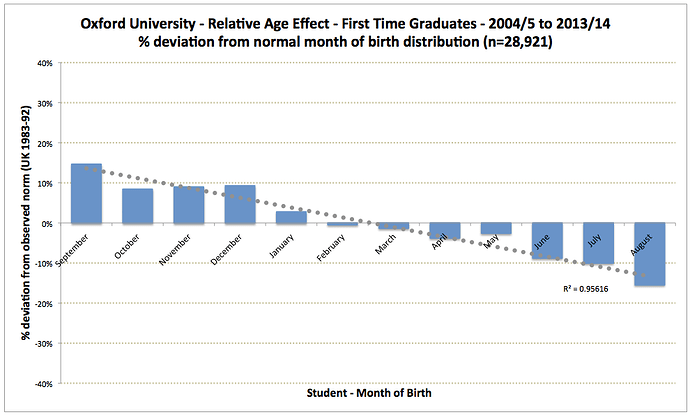It is more than your belief, it is what research has shown ![]()
Red shirting for kids who do not have disabilities is most common in White boys from upper SES.
https://journals.sagepub.com/doi/abs/10.3102/0162373713482764
https://journals.sagepub.com/doi/full/10.1177/2332858415590800
Yet, as all the research on the matter has demonstrated, this is not the case.
Furthermore, as @msdynamite85 wrote, low SES families cannot really afford to keep their kid at home, rather than send them to free kindergarten.
I am sorry, but obsessing over which college a kid will attend when that kid has not started kindergarten is not something that low SES families do. For families in the bottom 40% by income, college is barely even on the radar, and if their kid will attend college, it is almost certainly going to be open enrollment 4 year or 2 year college, a for-profit college, or a college with admission rates of over 50%. Fewer than 1% of them are attending an “elite” college.
Furthermore, part of being low SES is not having the luxury of spending money at the present, in order to save money at some future date. Even if they are actually thinking of their pre-K kid’s college career, keeping their kid at home rather than sending them to free kindergarten is simply not an option. We’re not talking about keeping a car for two more years, or giving up an expensive summer vacation, we’re talking about having enough money to keep their only car or, in many cases, being able to pay rent.
Few low SES families are going to pay for another year of child care and reduce their family income by 50% so that, in 12 years, that kid MAYBE be able to get a scholarship to go to an “elite” college.
As for mid-income families? They too have the same considerations - pay for another year of daycare, for the really small chance that this delay will somehow allow their kid to continue excelling in sports or academics in high school?
Basic math - the average student debt from public universities per student, is around $25,500 (for private universities it’s over $30,000). The median annual individual income for the mid 40% is around $45,000, and annual daycare costs are around $17,000.
Any way you cut it, for a mid-income family, it is more affordable to start a kid at kindergarten on time and pay the median cost of college in the future, including taking loans than it is to redshirt that kid.
